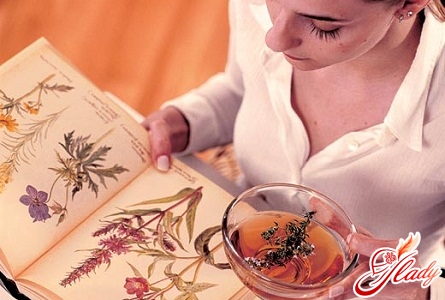 Atrophic gastritis is one ofvarieties of this disease, occurring in approximately 20% of all cases of gastritis. Moreover, this form is one of the most serious, causing concern among gastroenterologists. With atrophic gastritis, there is a strong thinning of the gastric mucosa, the glands responsible for the production of gastric juice atrophy. Another very unpleasant phenomenon accompanying atrophic gastritis is a disruption of the normal functioning of the immune system of the patient's body. This happens for several reasons. Firstly, the production of immunoglobulin A is disrupted. And secondly, certain antibodies are produced that begin to destroy the cells of the gastric glands. In fact, this is why the thinning of the gastric mucosa occurs - this is the atrophic process. The onset of the pathological process of atrophy occurs at the bottom of the stomach, since this is where the parietal cells are located. After their damage, there is a disruption in the production of such components of gastric juice as pepsinogen and hydrochloric acid, which are directly involved in the digestion process. Moreover, as soon as this process begins, the mucous membrane of the stomach is even more injured by food. Accordingly, the larger the injured area, the larger the area of atrophy. It turns out to be a kind of vicious circle, which you are unlikely to break without treatment. In addition, with atrophic gastritis, the amount of gastromucoprotein, an enzyme in the gastric juice responsible for the absorption of vitamin B12, is significantly reduced. And a sharp decrease in the content of this vitamin in the body leads to the development of B12-deficiency anemia. While gastritis is still only superficial, this problem is almost unnoticed, but then it can turn into serious complications. This happens especially often in cases where gastritis occurs with increased acidity.
Atrophic gastritis is one ofvarieties of this disease, occurring in approximately 20% of all cases of gastritis. Moreover, this form is one of the most serious, causing concern among gastroenterologists. With atrophic gastritis, there is a strong thinning of the gastric mucosa, the glands responsible for the production of gastric juice atrophy. Another very unpleasant phenomenon accompanying atrophic gastritis is a disruption of the normal functioning of the immune system of the patient's body. This happens for several reasons. Firstly, the production of immunoglobulin A is disrupted. And secondly, certain antibodies are produced that begin to destroy the cells of the gastric glands. In fact, this is why the thinning of the gastric mucosa occurs - this is the atrophic process. The onset of the pathological process of atrophy occurs at the bottom of the stomach, since this is where the parietal cells are located. After their damage, there is a disruption in the production of such components of gastric juice as pepsinogen and hydrochloric acid, which are directly involved in the digestion process. Moreover, as soon as this process begins, the mucous membrane of the stomach is even more injured by food. Accordingly, the larger the injured area, the larger the area of atrophy. It turns out to be a kind of vicious circle, which you are unlikely to break without treatment. In addition, with atrophic gastritis, the amount of gastromucoprotein, an enzyme in the gastric juice responsible for the absorption of vitamin B12, is significantly reduced. And a sharp decrease in the content of this vitamin in the body leads to the development of B12-deficiency anemia. While gastritis is still only superficial, this problem is almost unnoticed, but then it can turn into serious complications. This happens especially often in cases where gastritis occurs with increased acidity.
Causes of development of atrophic gastritis
There is no smoke without fire, no disease without a cause,provoking its development. This is also true for atrophic gastritis. Although even doctors cannot say for sure what can provoke the development of this disease - science has not yet been able to reliably establish this. Nevertheless, a number of reasons that increase the risk of developing atrophic gastritis have been voiced:
- The use of aggressive food
In order for the development of pathologicalprocess, a negative impact on the mucous membrane of the stomach is necessary. And very often such an irritating factor is food. Spicy, spicy, too hot and too cold, poorly chewed - it can greatly harm the condition of the stomach.
- Chemical poisoning
Sometimes it happens that in the stomach cavityone or another chemical substance gets in. Whether it is alkali or acid, a violent chemical reaction cannot be avoided. Don't believe me? You can see for yourself. Add a drop of vinegar and a pinch of soda to a glass of water - an active chemical process will begin. And the same thing happens in the stomach. And this is what can cause the development of atrophic gastritis. By the way, those people who, due to the nature of their work, are forced to constantly contact with toxic substances should be especially careful. Of course, no one claims that you will drink these substances. But remember that when you inhale air with particles of these substances, they settle in the oral cavity. This means that they are swallowed and get into the stomach. By the way, you can get erosive gastritis in the same way.
- Bad habits
Probably, no one needs to explain thatNicotine and alcohol have a very strong irritating effect on the gastric mucosa. Incidentally, this also applies to coffee and carbonated drinks - they also injure the mucosa and can provoke the development of atrophic gastritis. Many smokers often notice symptoms of gastritis, at least periodically.
- Reflux
Reflux is the backflow of intestinal contents.back into the stomach. It is not difficult to imagine what will happen in this case. Reflux with a very high degree of probability can provoke the development of atrophic gastritis with increased acidity.
- Medicinal products
In some cases, the cause of subsequent irritationlong-term use of certain medications can cause damage to the gastric mucosa. If you are forced to undergo a course of medication, follow all measures to prevent gastritis. And if pain does occur, tell your doctor as soon as possible. You may need to consult a gastroenterologist.
Symptoms of chronic atrophic gastritis
Chronic atrophic gastritis can be quitefor a long time proceed practically asymptomatically, until a certain stage of progression, while it is superficial. After this, the sick person begins to show the following symptoms of the disease:
- Heaviness in the stomach
Sick people report a feeling of heaviness in the stomachbecomes their usual companion. It is enough to eat just a piece of bread or a few spoons of soup, as a feeling of strong fullness of the stomach arises, as if after a hearty feast. Discomfort is pronounced. By the way, this is often why people suffering from chronic atrophic gastritis sooner or later begin to lose weight. Dear women, this is not a guide to action and not a reason for joy. After all, the extra pounds lost in this way will have to be too high a price. Then you will have to undergo a long treatment.
- Belching and heartburn
As the disease progresses in a sick personbelching appears more and more often, and most often with a sour taste. This happens soon after each meal. In addition to belching, a sick person may be bothered by severe heartburn, which does not go away for a long time even after taking medications. By the way, both belching and heartburn are signs that atrophic gastritis occurs with increased acidity.
- Problems with the intestines
Due to a general disruption of the digestive processthere are interruptions in the work of the intestines. The sick person often complains of such symptoms as constant gurgling and rumbling. Often the stool is disturbed - constipation is replaced by diarrhea and vice versa. Moreover, even superficial gastritis with low acidity can lead to such disorders.
- Deterioration of the general condition of the body
The general condition also suffers quite a lot.of the body. As the disease progresses, the absorption of various nutrients, vitamins and microelements will become increasingly impaired. As a result, vitamin deficiency and anemia develop, not only B12, but also iron deficiency - all symptoms are expressed quite clearly. Lack of vitamin C leads to weakened immunity, bleeding gums, lack of vitamin A can be the culprit of deterioration of the skin, nails and hair, as well as decreased vision. A person begins to experience symptoms such as weakness, dizziness, and quickly gets tired. At first, all this is very moderate, but gradually the patient's condition worsens.
- Painful sensations
As you can see, pain is the last thing on the list.symptoms of atrophic gastritis. And it is not surprising, because, despite all the other symptoms, pain is not typical for this type of gastritis. And if pain does occur, it is short-lived. It is of a dull, pulling nature, localized in the epigastric region.
Diagnosis and treatment of the disease
In order to choose the right treatment,the doctor must accurately diagnose the disease. After all, similar symptoms are observed in a number of other types of gastritis. And each type of gastritis requires its own individual approach and treatment. For example, superficial and erosive gastritis cannot be treated in the same way. To diagnose, the doctor will prescribe a number of tests for the patient:
- X-ray examination of the stomach
- Fibrogastroduodenoscopic examination of the stomach
- Determination of acidity level of gastric juice
- Immunological examination of blood
Based on all this data, the doctor objectivelywill assess the patient's condition, determine the stage of the disease and the condition of the gastric mucosa. And only after that will he select an individual course of treatment. And the first thing that is necessary for successful treatment of chronic atrophic gastritis is a therapeutic diet. If the diet is incorrect, you should not even hope for effective treatment. During an exacerbation of the disease, the patient should receive gentle food - there should be no mechanical or thermal irritation of the gastric mucosa. Pay special attention to the consistency of the food - it should be thoroughly chopped, without any coarse particles. You can cook food either by steaming, or boiling, or baking in the oven - of course, without fat. Before eating, all dishes must be thoroughly chopped, to a puree state. In no case should you eat cold or hot dishes - both high and low temperatures greatly irritate and injure the gastric mucosa. Ideally, all food intended for a person with an exacerbation of chronic atrophic gastritis should be at room temperature. And even outside of an exacerbation, strictly speaking, it is still not worth abusing coarse, cold or hot food - it should be moderately warm. Pay attention to the list of strictly prohibited products. Their use is unacceptable under any pretext, as it will provoke an even greater deterioration in the patient's condition. So:
- Spicy, salty, smoked and acidic foods
- Products containing artificial preservatives and colorants
- Easily assimilated carbohydrates - as a rule, sweets: chocolate, sweets, cakes
- Carbonated and alcoholic beverages, as well as caffeinated beverages
Moreover, from all these products a person is sickchronic atrophic gastritis, it is necessary to refuse and outside the period of exacerbation. Since it is these products themselves that can provoke the development of exacerbation. Therefore, it is better to give preference to the following products:
- Boiled meat, fish and poultry are extremely low-fat varieties
- Thermally processed vegetables and fruits
- Thick mucous soups, well-boiled porridges
- Kissels, jelly and mousses
- Fruit juices - with reduced acidity
- Still mineral water, unsweetened compotes, cocoa
Folk recipes
In case you have chronicatrophic gastritis, you can try to cure it with folk remedies. Of course, in no case should you ignore the treatment for chronic atrophic gastritis that your doctor prescribed. But you can perfectly combine both treatments. Of course, if the doctor has given his permission for this.
- Sea buckthorn oil
For the treatment of atrophic gastritis with increasedacidity of gastric juice, sea buckthorn oil is successfully used. Moreover, it is best to use ready-made, which can be easily purchased at any pharmacy. The method of application is very simple - dilute two teaspoons of sea buckthorn oil in half a glass of warm milk. Drink this mixture in the morning, on an empty stomach. The treatment should continue for at least one month. In this way, even very advanced gastritis can be cured. By the way, this remedy is also very good for severe heartburn, which is very common in people suffering from gastritis with high acidity. Just slightly increase the concentration of sea buckthorn oil - up to three teaspoons. But be prepared for the fact that the stool may soften a little.
- Pharmacy Chamomile
Chamomile has numerous beneficial properties.properties – it is used to cure a very large number of diseases. And our gastritis – both with low and high acidity – can also be treated with chamomile decoction. And a sick person with high acidity can also get rid of heartburn with chamomile. To prepare the decoction, place three tablespoons of dry chamomile flowers in an enamel pan, pour in one liter of water and bring to a boil. Reduce heat and cook for about 10 minutes. After that, wrap the pan in a terry towel and leave to infuse for two hours. In the case of gastritis with low acidity, you can add five tablespoons of any natural honey – it perfectly relieves the inflammatory process of the gastric mucosa. In the same case, if gastritis is with high acidity, honey should not be added under any circumstances, as it can provoke severe heartburn. Moreover, for gastritis with high acidity, you can prepare a decoction in milk. It is prepared in the same way, only it needs to be stored in the refrigerator. The decoction is taken three times a day, half an hour before meals. And for low acidity - immediately before meals. We recommend reading:









